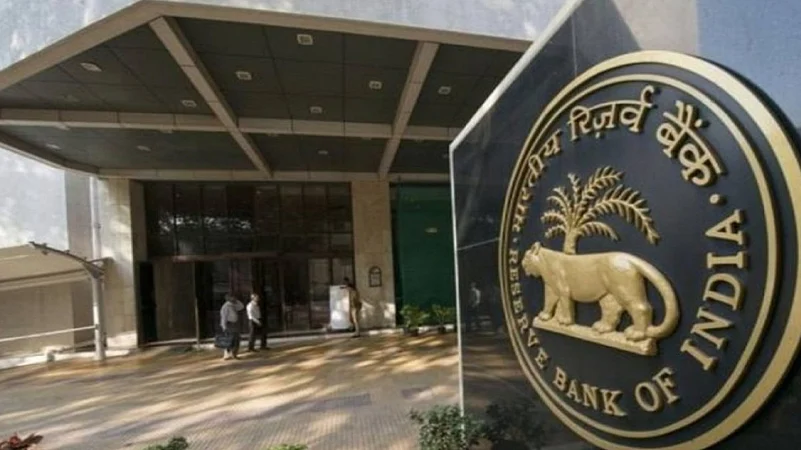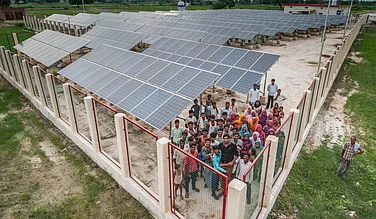The initial inflationary pressure was delivered by successive supply shocks but as their impact waned, a "revenge rebound" in spending is generalising price pressures and making them persistent, according to an RBI paper that has analysed inflation trajectory in the country after February 2022.
The paper said that supply-side shocks resulting from the Russia-Ukraine war pushed retail inflation beyond the Reserve Bank of India's upper tolerance level of 6 per cent.
However, the Consumer Price Index (CPI) based retail inflation, which remained above 6 per cent since January, moderated by 90 basis points to 5.9 per cent in November, driven by a fall in vegetable prices even as core inflation remained steady at 6 per cent.
"The initial inflationary pressure was delivered by successive supply shocks but as their impact waned, a revenge rebound in spending and especially a swing from goods to contact-intensive services is generalising price pressures and making them persistent," as per the paper titled 'Anatomy of Inflation's Ascent in India' which is part of RBI Bulletin released on Tuesday.
Authored by a team led by RBI Deputy Governor Michael Debabrata Patra, the paper attempts to provide a detailed analysis of the inflation trajectory in India post-February 2022.
It said that with the worst of the pandemic's two devastating waves having been weathered and unfavourable base effects being up to January 2022, RBI in February 2022 projected average inflation at 4.5 per cent during 2022-23.
The projection was on the basis of ebbing coronavirus infections, easing supply chain pressures, normal monsoons and global commodity prices moving in a range-bound manner.
"The precipitation of geopolitical tensions into an outbreak of war in Ukraine completely overturned macroeconomic conditions," the paper said.
International prices of energy, industrial metals, and food shot up to unprecedented highs, and supply chain disruptions became acute, leading to an escalation of cost pressures.
Inflation shot up across advanced and emerging economies to levels not seen in four decades.
The shock waves spilled over and inflation in India slipped its pre-pandemic moorings, levitating to a peak of 7.8 per cent in April 2022 before easing to an average of 6.8 per cent during May-November 2022, as per the paper.
This triggered accountability procedures mandated by legislation whenever inflation breaches the upper/lower tolerance bands around the target for three consecutive quarters, it said.
RBI had recently submitted a report to the central government explaining the reasons for its failure to meet the inflation target and steps to bring it back in the tolerance band of 2-6 per cent.
As per RBI's current projections, inflation is forecast to average 6.7 per cent in 2022-23 and 5.2 per cent in the first half of 2023-24.
"The foregoing analysis highlights the predominant role of supply-side shocks in pushing up headline inflation above the upper tolerance band. What started as a shock to food and fuel prices got increasingly generalised over ensuing months," the paper said.
This was reflected in highly elevated and sticky core inflation.
"Unprecedented input cost pressures got translated to output prices, particularly goods prices, in spite of muted demand conditions and pricing power.
"As the direct effects of the conflict waned and international commodity prices softened, the strengthening domestic recovery and rising demand enabled pass-through of pent-up input costs, especially in services, adding persistence to elevated inflationary pressures," it said.
Since early 2022, goods have been driving the inflation process. Services inflation lagged behind, especially on account of low house rent inflation and the low pricing power of services sector firms.
"As an explosive rebound in demand for services took hold subsequently, pricing power improved and translated into faster pass-through of high costs to services and the generalisation of inflation," the paper said.
In India, the paper also said the prominence of food and fuel in the consumption basket amplifies the dominance of supply-side shocks and spillovers to the formation of overall inflation.

Reserve Bank Of India
Reserve Bank Of India
Published At:
- Previous Story
 Over 28 Lakh Households Benefited Under PM Surya Ghar Scheme With ₹16,000 Cr Assistance
Over 28 Lakh Households Benefited Under PM Surya Ghar Scheme With ₹16,000 Cr Assistance - Next Story
MOST POPULAR
WATCH
MORE FROM THE AUTHOR
×


















.jpg?w=200&auto=format%2Ccompress&fit=max)




